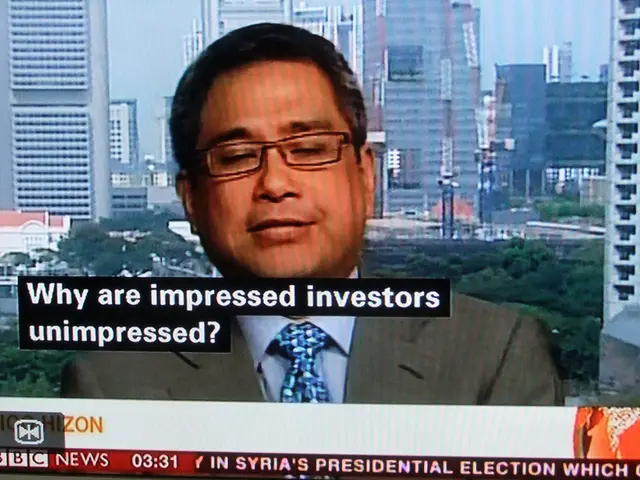Scrutinizing the Shadows: Mastering Anti-Money Laundering (AML) Strategies
Understanding Anti-Money Laundering (AML): A Measure to Combat Financial Crimes
Dive into the world of Anti-Money Laundering (AML) and learn how to create a foolproof plan to combat this global threat. Here's what you need to know:
Key Insights:
- Money laundering is the art of transforming illegally obtained money into "clean" assets, masking its criminal origins.
- The fight against money laundering began with the Bank Secrecy Act (BSA) in 1970, accompanied by the creation of the Financial Crimes Enforcement Network (FinCEN).
- The Financial Action Task Force (FATF), formed in 1989, has since enhanced the global war on financial crimes by monitoring nations' Anti-Money Laundering (AML) and Counter-Terrorism Financing (CTF) activities.
The Three-Pronged Approach to Money Laundering:
- Placement: The initial stage, where illicit funds are injected into the financial system by breaking them down into smaller amounts or commingling with legitimate transactions.
- Layering: Criminals move the money around through numerous transactions like transfers, offshore accounts, or asset purchases to confuse trails. Cryptocurrency's anonymity is making this process increasingly popular.
- Integration: The final stage, where the "cleaned" money is reintroduced into the legitimate economy through legal investments, high-value purchases, or business ventures, effectively disguising its criminal origins.
Nations Under FATF's Microscope:
High-risk nations with strategic AML/CTF system deficiencies are under increased scrutiny by FATF. As of 2023, these countries include:
- High-Risk Jurisdictions (subject to a call for action): North Korea (DPRK), Iran, and Myanmar.
- Jurisdictions under Increased Monitoring (also known as the "grey list"): Nigeria, South Africa, Turkey, Cameroon, Vietnam, and the Philippines. Firms engaging in transactions with these nations must apply heightened due diligence.
Compliance Obligations Fall on Several Sectors:
- Banks are the primary targets, so they must adhere to stringent AML regulations and customer due diligence procedures.
- FinTech companies, with their ease of digital transactions, must also comply with strict AML measures.
- Cryptocurrency platforms face intense scrutiny due to their anonymity; internal controls, KYC, and AML compliance are mandatory.
- The capital market industry must maintain transparency to detect and prevent fraudulent activities.
- Insurance companies must exercise due diligence to avoid money laundering tied to insurance products.
- Real estate agencies are prime targets for money laundering. Enhanced background checks and AML compliance are necessary throughout the process.
- The rapidly growing gaming sector, once seen as unregulated, attracts increased FIN-CEN oversight and stricter AML regulations.
- Public sectors must be vigilant in identifying and preventing money laundering activities to protect their integrity.
Compliance With BSA:
The Bank Secrecy Act (BSA) requires financial institutions, among others, to implement comprehensive AML programs to detect and prevent financial crimes. FINRA and its Rule 3310 mandate compliance with the following minimum requirements for broker-dealers.
- Establish AML Compliance Policies and Procedures
- Ensure BSA Compliance
- Conduct Independent Testing Annually
- Designate an AML Officer or Team
- Provide Ongoing Employee Training
- Implement Customer Due Diligence Procedures
Five Pillars of AML Compliance:
- Appoint a Dedicated Compliance Officer
- Establish Effective Internal Controls
- Ongoing Employee Training
- Independent Testing and Auditing
- Implement Customer Due Diligence Procedures
Be proactive in the fight against money laundering, safeguarding your organization and the global financial system from the destructive impact of illicit activities.
- In her career, she has specialized in Anti-Money Laundering (AML) strategies to combat the global threat, providing valuable insights in the finance and industry sectors.
- As a student, he is intrigued by the complexity of money laundering and its impact on personal-finance and lifestyle, particularly with the rise of technology in cybersecurity and data-and-cloud-computing.
- The newspaper article focuses on the infiltration of money laundering in the gambling industry, with concerns about casino-and-gambling activities and crime-and-justice impacts.
- The principal of a school emphasizes the importance of educating students about the dangers of money laundering, integrating discussions on general-news, crime-and-justice, and self-development into their curriculum.
- The CEO of a tech company is urging their employees to undergo training in AML strategies to ensure internal controls and compliance in all transactions, minimizing risks from insider threats or external hacking incidents in technology and business operations.
- A shop owner is required to implement stringent AML measures to detect and prevent money laundering activities, ensuring compliance with BSA regulations and adhering to customer due diligence procedures.
- The venture capitalist invests strategically in businesses that prioritize AML compliance, seeking transparency in their operations and uncovering attractive investment opportunities in industries ranging from entertainment to sports.
- With the increase in money laundering attempts in local real estate markets, the government is emphasizing the need for enhanced AML regulations and background checks on buyers, aiming to protect the nation's economy and maintain integrity in the property industry.







